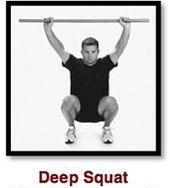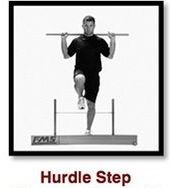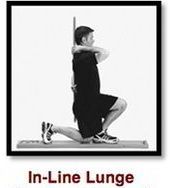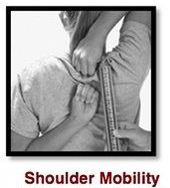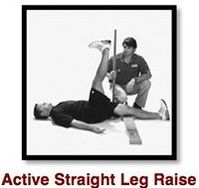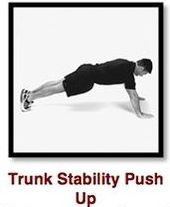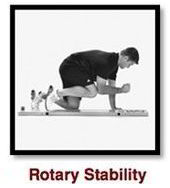Functional Movement Screening
What is Functional Movement Screening?
Functional Movement Screening is a tool used to identify limitations, or asymmetries, in movement patterns for individuals with no current pain complaint or known musculoskeletal injury.
These movement patterns are key to proper, or “functional,” movement quality.
Movement screening provides observable performance of a client’s basic locomotor, manipulative, and stabilizing movements. By placing an individual in extreme positions, weaknesses and imbalances become noticeable if they don’t utilize appropriate mobility and motor control.
Hands On Healing uses this information for two purposes:
- Corroboration of our Postural Assessment & Analysis
- Implementation of a Corrective Movement Program
This approach helps clients maintain the progress obtained during their hands-on treatment and produces more effective, longer lasting results.
Healthy Movement Patterns
While the idea of moving healthily seems like common sense, it holds a particular importance for practitioners who provide Advanced Bodywork services.
Our background as therapists is focused on the treatment of fascial adhesion and soft-tissue imbalances.
Healthy movement becomes an essential component in ensuring that our clients experience long-term benefits from therapy we provide.
When faced with improving movement, how do we know what movements need to be improved?
Introduction to the Functional Movement Screen
Most modalities and techniques for investigating movement take a very isolated approach, dissecting each joint and muscle down to its basic function.
This approach often overlooks that the body works as an integrated system that relies on healthy movement patterns in order to function properly.
The concept of exploring movement patterns as a whole brought about the development of the Functional Movement Screen (or “FMS” for short).
How Does the FMS Work?
The concept is simple.
Regardless of how much a person moves their body, if those movements are done poorly the body will have to compensate. These compensatory movements cause damage to tissues and create unhealthy patterns.
The FMS is designed to measure movement quality, as opposed to movement quantity, using isolated measurement techniques.
By measuring basic movement patterns, we can focus on the most concerning area(s) of movement and begin balancing the multiple systems that define healthy function.
7 Basic Movement Patterns
The FMS process takes a client through a series of basic movement patterns, each designed to test their underlying mobility, stability, and neurological motor control.
The seven fundamental movement patterns that make up the FMS include:
- Deep Squat (Figure 1)
- Hurdle Step (Figure 2)
- In-Line Lunge (Figure 3)
- Shoulder Mobility (Figure 4)
- Active Straight Leg Raise (Figure 5)
- Trunk Stability Push-Up (Figure 6)
- Rotary Stability (Figure 7)
Benefits of the FMS
The results of the screen are utilized by our therapists to create exercise programs specifically designed to help our clients recover from, or avoid, injuries.
If our therapist determines there is a particular problem that might be a limiting factor for improving a client’s overall movement health, the weakest link can be directly addressed through specific techniques and corrective patterns.
This corrective approach focuses first on improving the body’s mobility, and then stabilizing the pattern with specific movements meant to train neuromuscular timing and muscle coordination.
Less Pain & Dysfunction
A very important aspect of the corrective strategies provided by the
FMS is that as movement patterns improve over time, the body becomes less likely to suffer from movement related injuries, meaning far less pain and dysfunction.
Although we as therapists have preached the importance of “homework” and exercise in the past, it cannot be overstated that improving the body’s movements is the only surefire way of maintaining the benefits that are provided from receiving bodywork.

